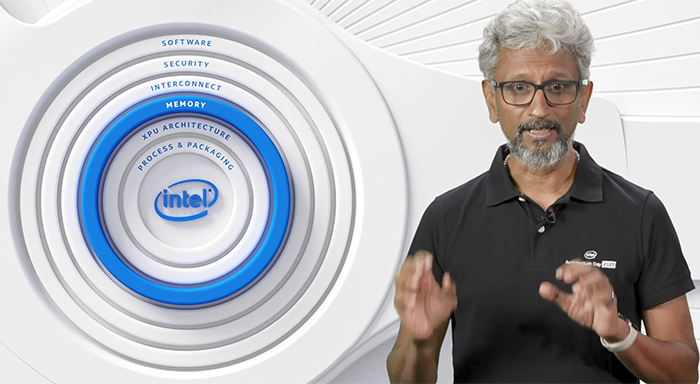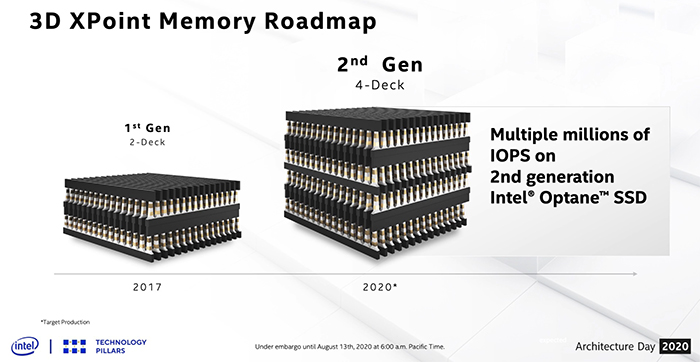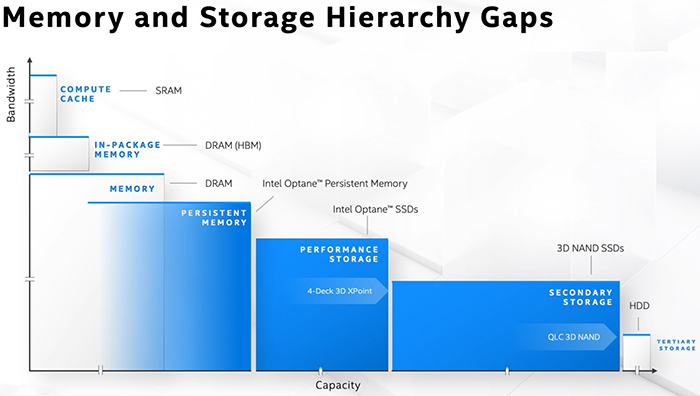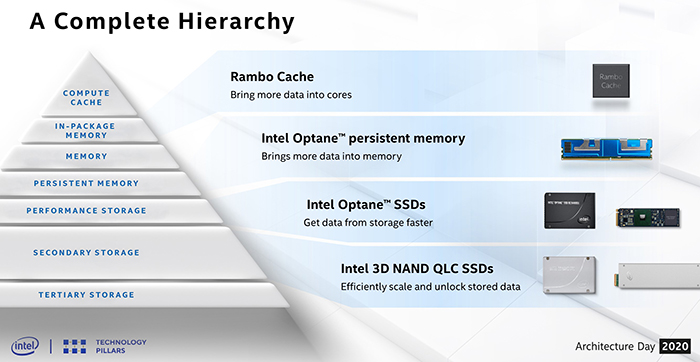Intel publically demonstrated its 3D XPoint memory as Optane over four years ago. Since that time it has updated many CPU/motherboard products and the memory has been used in multiple complementary products but it has always been based on that same first gen 3D XPoint.

As part of the Intel Architecture Day 2020 presentation yesterday Raja Koduri spent some time discussing Optane and its future applications (video segment begins 1hr 45mins in). The first key slide Koduri shared was of the 3D XPoint memory roadmap bearing its 2nd gen fruit later this year. The new 4-deck memory will deliver "multiple millions of IOPS" in 2nd gen Optane SSDs, says Intel.

The 2nd gen Optane SSDs (codenamed Alder Stream) will have double the density, they will move to PCIe gen 4.0 and Intel's goal is to deliver greater than 2x performance with the new storage products. Optimisations for single sector reads implemented by Intel will deliver further reduced latencies.

You can see in the chart above that the introduction of Optane 2.0 further closes the performance/capacity gap in the memory hierarchy.
After this part of the presentation Koduri goes on to talk about Barlow Pass Optane DC persistent memory modules, but these are based upon the first gen 3D XPoint memory with controller tweaks to deliver a more modest 25 per cent bandwidth increase.

Before Koduri discussed 3D XPoint he gave a brief outline of Intel's strategy in other memory products. Specifically he said that Intel's 144 layer QLC 3D NAND was on the way, to bring SSD pricing down to better rival HDD storage, and it will debut in products before 2020 is out.






